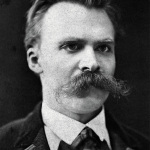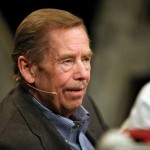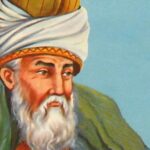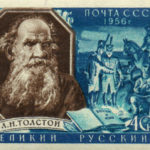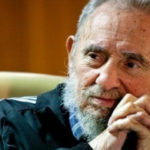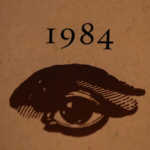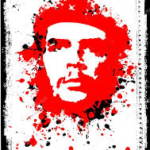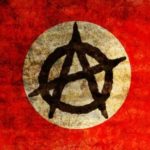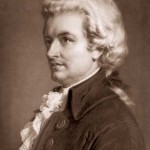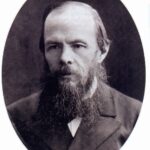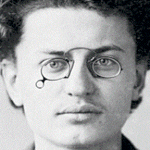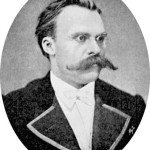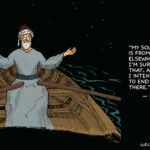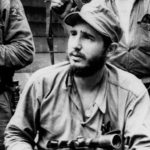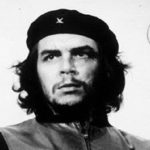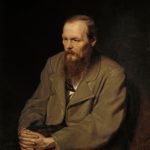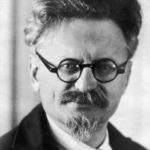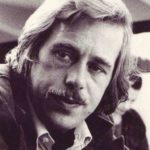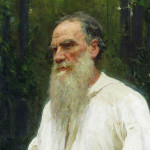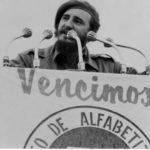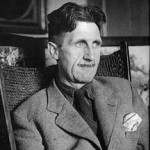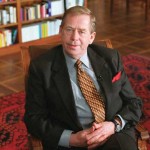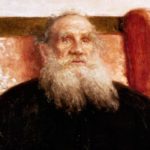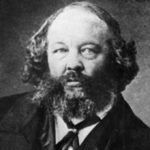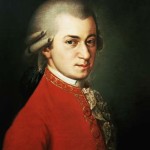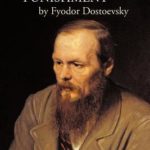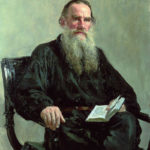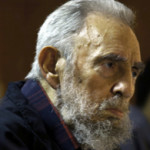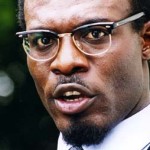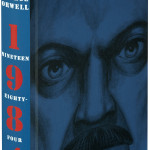Articles by Encyclopædia Britannica
We found 71 results.
Fyodor Dostoyevsky (11 Nov 1821 – 9 Feb 1881)
Gary Saul Morson | Encyclopædia Britannica – TRANSCEND Media Service,
7 Nov 2022
Dostoyevsky is usually regarded as one of the finest novelists who ever lived. Literary modernism, existentialism, and various schools of psychology, theology, and literary criticism have been profoundly shaped by his ideas. His works are often called prophetic because he so accurately predicted how Russia’s revolutionaries would behave if they came to power. In his time, he was also renowned for his activity as a journalist.
→ read full articleLeon Trotsky (7 Nov 1879 – 21 Aug 1940)
Robert V. Daniels | Encyclopædia Britannica - TRANSCEND Media Service,
7 Nov 2022
In the struggle for power following Vladimir Ilich Lenin’s death, Joseph Stalin emerged as victor, while Trotsky was removed from all positions of power and later exiled (1929). He remained the leader of an anti-Stalinist opposition abroad until his assassination by a Stalinist agent.
→ read full articleFriedrich Nietzsche (15 Oct 1844 – 25 Aug 1900)
Bernd Magnus | Encyclopædia Britannica – TRANSCEND Media Service,
10 Oct 2022
Friedrich Nietzsche’s attempts to unmask the motives that underlie traditional Western religion, morality, and philosophy deeply affected generations of theologians, philosophers, psychologists, poets, novelists, and playwrights. He thought through the consequences of the triumph of the Enlightenment’s secularism, expressed in his observation that “God is dead.”
→ read full articleVáclav Havel (5 Oct 1936 – 18 Dec 2011)
Encyclopædia Britannica – TRANSCEND Media Service,
3 Oct 2022
Václav Havel, Czech playwright, poet, and political dissident, who, after the fall of communism, was president of Czechoslovakia (1989–92) and of the Czech Republic (1993–2003). Havel was the son of a wealthy restaurateur whose property was confiscated by the communist government of Czechoslovakia in 1948.
→ read full articleRūmī (30 Sep 1207 – 17 Dec 1273)
Annemarie Schimmel | Encyclopædia Britannica – TRANSCEND Media Service,
26 Sep 2022
Sufi Mystic and Poet – Rūmī’s use of Persian and Arabic in his poetry, in addition to some Turkish and Greek, has resulted in his being claimed variously for Turkish and Persian literature. The influence of his writings in the Indian subcontinent is also substantial.
→ read full articleLeo Tolstoy (9 Sep 1828 – 20 Nov 1910)
Gary Saul Morson | Encyclopædia Britannica - TRANSCEND Media Service,
5 Sep 2022
In contrast to other psychological writers, such as Dostoyevsky, who specialized in unconscious processes, Tolstoy described conscious mental life with unparalleled mastery. Oscillating between skepticism and dogmatism, he explored the most-diverse approaches to human experience. Above all, his greatest works, ‘War and Peace’ and ‘Anna Karenina,’ endure as the summit of realist fiction.
→ read full articleFidel Castro (13 Aug 1926 – 25 Nov 2016)
Encyclopædia Britannica – TRANSCEND Media Service,
8 Aug 2022
Fidel Alejandro Castro Ruz, political leader of Cuba (1959–2008), transformed his country into the first communist state in the Western Hemisphere. Castro became a symbol of communist revolution in Latin America.
→ read full articleGeorge Orwell (25 Jun 1903 – 21 Jan 1950)
Encyclopædia Britannica – TRANSCEND Media Service,
20 Jun 2022
George Orwell was a novelist, essayist and critic famous for his novels Animal Farm (1945) and Nineteen Eighty-four (1949) the latter a profound anti-Utopian novel that examines the dangers of totalitarian rule and surveillance state. Aldous Huxley was one of his masters. He worked between bouts of hospitalization for tuberculosis, of which he died in a London hospital.
→ read full articleErnesto ‘Che’ Guevara (14 Jun 1928 – 9 Oct 1967)
Encyclopædia Britannica – TRANSCEND Media Service,
13 Jun 2022
Ernesto Guevara de la Serna, theoretician and tactician of guerrilla warfare, prominent communist figure in the Cuban Revolution (1956–59), and guerrilla leader in South America, Guevara was a medical doctor specialized in leprosy. Traveling around South America, he observed conditions that spurred his revolt against poverty and capitalist exploitation, adopting Marxist ideology, theory and practices. He is revered by many as a martyred cultural hero, having become an iconic cult figure as a symbol of anti-imperialist struggles everywhere.
→ read full articleMikhail Aleksandrovich Bakunin (30 May 1814 – 1 Jul 1876)
Alan Ryan | Encyclopædia Britannica – TRANSCEND Media Service,
30 May 2022
Bakunin formulated no coherent body of doctrine, and his voluminous and vigorous writings were often left incomplete. Anarchist movements owing allegiance to Bakunin flourished in Italy and especially in Spain, where as late as 1936 the anarchists were the strongest revolutionary party. Bakunin died in Bern, Switzerland as chief propagator of 19th-century anarchism, a prominent Russian revolutionary agitator, and a prolific political writer.
→ read full articleWolfgang Amadeus Mozart (27 Jan 1756 – 5 Dec 1791)
Encyclopædia Britannica– TRANSCEND Media Service,
24 Jan 2022
Wolfgang Amadeus Mozart, Austrian composer, widely recognized as one of the greatest composers in the history of Western music. With Haydn and Beethoven he brought to its height the achievement of the Viennese Classical School. Unlike any other composer in musical history, he wrote in all the musical genres of his day and excelled in every one. His taste, his command of form, and his range of expression have made him seem the most universal of all composers.
→ read full articleFyodor Dostoyevsky (11 Nov 1821 – 9 Feb 1881)
Gary Saul Morson | Encyclopædia Britannica – TRANSCEND Media Service,
8 Nov 2021
Dostoyevsky is usually regarded as one of the finest novelists who ever lived. Literary modernism, existentialism, and various schools of psychology, theology, and literary criticism have been profoundly shaped by his ideas. His works are often called prophetic because he so accurately predicted how Russia’s revolutionaries would behave if they came to power. In his time, he was also renowned for his activity as a journalist.
→ read full articleLeon Trotsky (7 Nov 1879 – 21 Aug 1940)
Robert V. Daniels | Encyclopædia Britannica - TRANSCEND Media Service,
1 Nov 2021
In the struggle for power following Vladimir Ilich Lenin’s death, Joseph Stalin emerged as victor, while Trotsky was removed from all positions of power and later exiled (1929). He remained the leader of an anti-Stalinist opposition abroad until his assassination by a Stalinist agent.
→ read full articleFriedrich Nietzsche (15 Oct 1844 – 25 Aug 1900)
Bernd Magnus | Encyclopædia Britannica – TRANSCEND Media Service,
11 Oct 2021
Friedrich Nietzsche’s attempts to unmask the motives that underlie traditional Western religion, morality, and philosophy deeply affected generations of theologians, philosophers, psychologists, poets, novelists, and playwrights. He thought through the consequences of the triumph of the Enlightenment’s secularism, expressed in his observation that “God is dead.”
→ read full articleVáclav Havel (5 Oct 1936 – 18 Dec 2011)
Encyclopædia Britannica – TRANSCEND Media Service,
4 Oct 2021
Václav Havel, Czech playwright, poet, and political dissident, who, after the fall of communism, was president of Czechoslovakia (1989–92) and of the Czech Republic (1993–2003). Havel was the son of a wealthy restaurateur whose property was confiscated by the communist government of Czechoslovakia in 1948.
→ read full articleRūmī (30 Sep 1207 – 17 Dec 1273)
Annemarie Schimmel | Encyclopædia Britannica – TRANSCEND Media Service,
27 Sep 2021
Sufi Mystic and Poet – Rūmī’s use of Persian and Arabic in his poetry, in addition to some Turkish and Greek, has resulted in his being claimed variously for Turkish and Persian literature. The influence of his writings in the Indian subcontinent is also substantial.
→ read full articleLeo Tolstoy (9 Sep 1828 – 20 Nov 1910)
Gary Saul Morson | Encyclopædia Britannica - TRANSCEND Media Service,
6 Sep 2021
In contrast to other psychological writers, such as Dostoyevsky, who specialized in unconscious processes, Tolstoy described conscious mental life with unparalleled mastery. Oscillating between skepticism and dogmatism, he explored the most-diverse approaches to human experience. Above all, his greatest works, ‘War and Peace’ and ‘Anna Karenina,’ endure as the summit of realist fiction.
→ read full articleFidel Castro (13 Aug 1926 – 25 Nov 2016)
Encyclopædia Britannica – TRANSCEND Media Service,
9 Aug 2021
Fidel Alejandro Castro Ruz, political leader of Cuba (1959–2008), transformed his country into the first communist state in the Western Hemisphere. Castro became a symbol of communist revolution in Latin America.
→ read full articleGeorge Orwell (25 Jun 1903 – 21 Jan 1950)
Encyclopædia Britannica – TRANSCEND Media Service,
21 Jun 2021
George Orwell was a novelist, essayist and critic famous for his novels Animal Farm (1945) and Nineteen Eighty-four (1949) the latter a profound anti-Utopian novel that examines the dangers of totalitarian rule and surveillance state. Aldous Huxley was one of his masters. He worked between bouts of hospitalization for tuberculosis, of which he died in a London hospital.
→ read full articleErnesto ‘Che’ Guevara (14 Jun 1928 – 9 Oct 1967)
Encyclopædia Britannica – TRANSCEND Media Service,
14 Jun 2021
Ernesto Guevara de la Serna, theoretician and tactician of guerrilla warfare, prominent communist figure in the Cuban Revolution (1956–59), and guerrilla leader in South America, Guevara was a medical doctor specialized in leprosy. Traveling around South America, he observed conditions that spurred his revolt against poverty and capitalist exploitation, adopting Marxist ideology, theory and practices. He is revered by many as a martyred cultural hero, having become an iconic cult figure as a symbol of anti-imperialist struggles everywhere.
→ read full articleMikhail Aleksandrovich Bakunin (30 May 1814 – 1 Jul 1876)
Alan Ryan | Encyclopædia Britannica – TRANSCEND Media Service,
24 May 2021
Bakunin formulated no coherent body of doctrine, and his voluminous and vigorous writings were often left incomplete. Anarchist movements owing allegiance to Bakunin flourished in Italy and especially in Spain, where as late as 1936 the anarchists were the strongest revolutionary party. Bakunin died in Bern, Switzerland as chief propagator of 19th-century anarchism, a prominent Russian revolutionary agitator, and a prolific political writer.
→ read full articleWolfgang Amadeus Mozart (27 Jan 1756 – 5 Dec 1791)
Encyclopædia Britannica– TRANSCEND Media Service,
25 Jan 2021
Wolfgang Amadeus Mozart, Austrian composer, widely recognized as one of the greatest composers in the history of Western music. With Haydn and Beethoven he brought to its height the achievement of the Viennese Classical School. Unlike any other composer in musical history, he wrote in all the musical genres of his day and excelled in every one. His taste, his command of form, and his range of expression have made him seem the most universal of all composers.
→ read full articleFyodor Dostoyevsky (11 Nov 1821 – 9 Feb 1881)
Gary Saul Morson | Encyclopædia Britannica – TRANSCEND Media Service,
9 Nov 2020
Dostoyevsky is usually regarded as one of the finest novelists who ever lived. Literary modernism, existentialism, and various schools of psychology, theology, and literary criticism have been profoundly shaped by his ideas. His works are often called prophetic because he so accurately predicted how Russia’s revolutionaries would behave if they came to power. In his time, he was also renowned for his activity as a journalist.
→ read full articleLeon Trotsky (7 Nov 1879 – 21 Aug 1940)
Robert V. Daniels | Encyclopædia Britannica - TRANSCEND Media Service,
2 Nov 2020
In the struggle for power following Vladimir Ilich Lenin’s death, Joseph Stalin emerged as victor, while Trotsky was removed from all positions of power and later exiled (1929). He remained the leader of an anti-Stalinist opposition abroad until his assassination by a Stalinist agent.
→ read full articleFriedrich Nietzsche (15 Oct 1844 – 25 Aug 1900)
Bernd Magnus | Encyclopædia Britannica – TRANSCEND Media Service,
12 Oct 2020
Friedrich Nietzsche’s attempts to unmask the motives that underlie traditional Western religion, morality, and philosophy deeply affected generations of theologians, philosophers, psychologists, poets, novelists, and playwrights. He thought through the consequences of the triumph of the Enlightenment’s secularism, expressed in his observation that “God is dead.”
→ read full articleVáclav Havel (5 Oct 1936 – 18 Dec 2011)
Encyclopædia Britannica – TRANSCEND Media Service,
5 Oct 2020
Václav Havel, Czech playwright, poet, and political dissident, who, after the fall of communism, was president of Czechoslovakia (1989–92) and of the Czech Republic (1993–2003). Havel was the son of a wealthy restaurateur whose property was confiscated by the communist government of Czechoslovakia in 1948.
→ read full articleRūmī (30 Sep 1207 – 17 Dec 1273)
Annemarie Schimmel | Encyclopædia Britannica – TRANSCEND Media Service,
28 Sep 2020
Sufi Mystic and Poet – Rūmī’s use of Persian and Arabic in his poetry, in addition to some Turkish and Greek, has resulted in his being claimed variously for Turkish and Persian literature. The influence of his writings in the Indian subcontinent is also substantial.
→ read full articleLeo Tolstoy (9 Sep 1828 – 20 Nov 1910)
Gary Saul Morson | Encyclopædia Britannica - TRANSCEND Media Service,
7 Sep 2020
In contrast to other psychological writers, such as Dostoyevsky, who specialized in unconscious processes, Tolstoy described conscious mental life with unparalleled mastery. Oscillating between skepticism and dogmatism, he explored the most-diverse approaches to human experience. Above all, his greatest works, ‘War and Peace’ and ‘Anna Karenina,’ endure as the summit of realist fiction.
→ read full articleFidel Castro (13 Aug 1926 – 25 Nov 2016)
Encyclopædia Britannica – TRANSCEND Media Service,
10 Aug 2020
Fidel Alejandro Castro Ruz, political leader of Cuba (1959–2008), transformed his country into the first communist state in the Western Hemisphere. Castro became a symbol of communist revolution in Latin America.
→ read full articleGeorge Orwell (25 Jun 1903 – 21 Jan 1950)
Encyclopædia Britannica – TRANSCEND Media Service,
22 Jun 2020
George Orwell was a novelist, essayist and critic famous for his novels Animal Farm (1945) and Nineteen Eighty-four (1949) the latter a profound anti-Utopian novel that examines the dangers of totalitarian rule and surveillance state. Aldous Huxley was one of his masters. He worked between bouts of hospitalization for tuberculosis, of which he died in a London hospital.
→ read full articleMikhail Aleksandrovich Bakunin (30 May 1814 – 1 Jul 1876)
Alan Ryan | Encyclopædia Britannica – TRANSCEND Media Service,
25 May 2020
Bakunin formulated no coherent body of doctrine, and his voluminous and vigorous writings were often left incomplete. Anarchist movements owing allegiance to Bakunin flourished in Italy and especially in Spain, where as late as 1936 the anarchists were the strongest revolutionary party. Bakunin died in Bern, Switzerland as chief propagator of 19th-century anarchism, a prominent Russian revolutionary agitator, and a prolific political writer.
→ read full articleWolfgang Amadeus Mozart (27 Jan 1756 – 5 Dec 1791)
Encyclopædia Britannica– TRANSCEND Media Service,
27 Jan 2020
Wolfgang Amadeus Mozart, Austrian composer, widely recognized as one of the greatest composers in the history of Western music. With Haydn and Beethoven he brought to its height the achievement of the Viennese Classical School. Unlike any other composer in musical history, he wrote in all the musical genres of his day and excelled in every one. His taste, his command of form, and his range of expression have made him seem the most universal of all composers.
→ read full articleFyodor Dostoyevsky (11 Nov 1821 – 9 Feb 1881)
Gary Saul Morson | Encyclopædia Britannica – TRANSCEND Media Service,
11 Nov 2019
Dostoyevsky is usually regarded as one of the finest novelists who ever lived. Literary modernism, existentialism, and various schools of psychology, theology, and literary criticism have been profoundly shaped by his ideas. His works are often called prophetic because he so accurately predicted how Russia’s revolutionaries would behave if they came to power. In his time, he was also renowned for his activity as a journalist.
→ read full articleLeon Trotsky (7 Nov 1879 – 21 Aug 1940)
Robert V. Daniels | Encyclopædia Britannica - TRANSCEND Media Service,
4 Nov 2019
In the struggle for power following Vladimir Ilich Lenin’s death, Joseph Stalin emerged as victor, while Trotsky was removed from all positions of power and later exiled (1929). He remained the leader of an anti-Stalinist opposition abroad until his assassination by a Stalinist agent.
→ read full articleFriedrich Nietzsche (15 Oct 1844 – 25 Aug 1900)
Bernd Magnus | Encyclopædia Britannica – TRANSCEND Media Service,
14 Oct 2019
Friedrich Nietzsche’s attempts to unmask the motives that underlie traditional Western religion, morality, and philosophy deeply affected generations of theologians, philosophers, psychologists, poets, novelists, and playwrights. He thought through the consequences of the triumph of the Enlightenment’s secularism, expressed in his observation that “God is dead.”
→ read full articleVáclav Havel (5 Oct 1936 – 18 Dec 2011)
Encyclopædia Britannica – TRANSCEND Media Service,
30 Sep 2019
Václav Havel, Czech playwright, poet, and political dissident, who, after the fall of communism, was president of Czechoslovakia (1989–92) and of the Czech Republic (1993–2003). Havel was the son of a wealthy restaurateur whose property was confiscated by the communist government of Czechoslovakia in 1948.
→ read full articleLeo Tolstoy (9 Sep 1828 – 20 Nov 1910)
Gary Saul Morson | Encyclopædia Britannica - TRANSCEND Media Service,
9 Sep 2019
In contrast to other psychological writers, such as Dostoyevsky, who specialized in unconscious processes, Tolstoy described conscious mental life with unparalleled mastery. Oscillating between skepticism and dogmatism, he explored the most-diverse approaches to human experience. Above all, his greatest works, ‘War and Peace’ and ‘Anna Karenina,’ endure as the summit of realist fiction.
→ read full articleFidel Castro (13 Aug 1926 – 25 Nov 2016)
Encyclopædia Britannica – TRANSCEND Media Service,
12 Aug 2019
Fidel Alejandro Castro Ruz, political leader of Cuba, transformed his country into the first communist state in the Western Hemisphere. Castro became a symbol of communist revolution in Latin America.
→ read full articleGeorge Orwell (25 Jun 1903 – 21 Jan 1950)
Encyclopædia Britannica – TRANSCEND Media Service,
24 Jun 2019
George Orwell was a novelist, essayist and critic famous for his novels Animal Farm (1945) and Nineteen Eighty-four (1949) the latter a profound anti-Utopian novel that examines the dangers of totalitarian rule and surveillance state. Aldous Huxley was one of his masters. He worked between bouts of hospitalization for tuberculosis, of which he died in a London hospital.
→ read full articleErnesto ‘Che’ Guevara (14 Jun 1928 – 9 Oct 1967)
Encyclopædia Britannica – TRANSCEND Media Service,
10 Jun 2019
Ernesto Guevara de la Serna, theoretician and tactician of guerrilla warfare, prominent communist figure in the Cuban Revolution (1956–59), and guerrilla leader in South America, Guevara was a medical doctor specialized in leprosy. Traveling around South America, he observed conditions that spurred his revolt against poverty and capitalist exploitation, adopting Marxist ideology, theory and practices. He is revered by many as a martyred cultural hero, having become an iconic cult figure as a symbol of anti-imperialist struggles everywhere.
→ read full articleMikhail Aleksandrovich Bakunin (30 May 1814 – 1 Jul 1876)
Alan Ryan | Encyclopædia Britannica – TRANSCEND Media Service,
27 May 2019
Bakunin formulated no coherent body of doctrine, and his voluminous and vigorous writings were often left incomplete. Anarchist movements owing allegiance to Bakunin flourished in Italy and especially in Spain, where as late as 1936 the anarchists were the strongest revolutionary party. Bakunin died in Bern, Switzerland as chief propagator of 19th-century anarchism, a prominent Russian revolutionary agitator, and a prolific political writer.
→ read full articleWolfgang Amadeus Mozart (27 Jan 1756 – 5 Dec 1791)
Encyclopædia Britannica– TRANSCEND Media Service,
21 Jan 2019
Unlike any other composer in musical history, he wrote in all the musical genres of his day and excelled in every one. His taste, his command of form, and his range of expression have made him seem the most universal of all composers.
→ read full articleLeon Trotsky (7 Nov 1879 – 21 Aug 1940)
Robert V. Daniels | Encyclopædia Britannica - TRANSCEND Media Service,
5 Nov 2018
In the struggle for power following Vladimir Ilich Lenin’s death, Joseph Stalin emerged as victor, while Trotsky was removed from all positions of power and later exiled (1929). He remained the leader of an anti-Stalinist opposition abroad until his assassination by a Stalinist agent.
→ read full articleFyodor Dostoyevsky (11 Nov 1821 – 9 Feb 1881)
Gary Saul Morson | Encyclopædia Britannica – TRANSCEND Media Service,
5 Nov 2018
Dostoyevsky is usually regarded as one of the finest novelists who ever lived. Literary modernism, existentialism, and various schools of psychology, theology, and literary criticism have been profoundly shaped by his ideas. His works are often called prophetic because he so accurately predicted how Russia’s revolutionaries would behave if they came to power. In his time, he was also renowned for his activity as a journalist.
→ read full articleFriedrich Nietzsche (15 Oct 1844 – 25 Aug 1900)
Bernd Magnus | Encyclopædia Britannica – TRANSCEND Media Service,
15 Oct 2018
Friedrich Nietzsche’s attempts to unmask the motives that underlie traditional Western religion, morality, and philosophy deeply affected generations of theologians, philosophers, psychologists, poets, novelists, and playwrights. He thought through the consequences of the triumph of the Enlightenment’s secularism, expressed in his observation that “God is dead.”
→ read full articleVáclav Havel (5 Oct 1936 – 18 Dec 2011)
Encyclopædia Britannica – TRANSCEND Media Service,
1 Oct 2018
Václav Havel, Czech playwright, poet, and political dissident, who, after the fall of communism, was president of Czechoslovakia (1989–92) and of the Czech Republic (1993–2003). Havel was the son of a wealthy restaurateur whose property was confiscated by the communist government of Czechoslovakia in 1948.
→ read full articleLeo Tolstoy (9 Sep 1828 – 20 Nov 1910)
Gary Saul Morson - Encyclopædia Britannica,
3 Sep 2018
In contrast to other psychological writers, such as Dostoyevsky, who specialized in unconscious processes, Tolstoy described conscious mental life with unparalleled mastery. Oscillating between skepticism and dogmatism, he explored the most-diverse approaches to human experience. Above all, his greatest works, ‘War and Peace’ and ‘Anna Karenina,’ endure as the summit of realist fiction.
→ read full articleFidel Castro (13 Aug 1926 – 25 Nov 2016)
Encyclopædia Britannica – TRANSCEND Media Service,
13 Aug 2018
Fidel Alejandro Castro Ruz, political leader of Cuba (1959–2008), transformed his country into the first communist state in the Western Hemisphere. Castro became a symbol of communist revolution in Latin America.
→ read full articlePatrice Lumumba (2 Jul 1925 – 17 Jan 1961)
Encyclopædia Britannica – TRANSCEND Media Service,
2 Jul 2018
Lumumba was a man of strong character who intended to pursue his policies regardless of the enemies he made within his country or abroad. Because of its wealth, size, and proximity to white-dominated southern Africa, Lumumba’s opponents feared the consequences of a radicalized Congo. Forced out of office during a political crisis, he was assassinated a short time later.
→ read full articleGeorge Orwell (25 Jun 1903 – 21 Jan 1950)
Encyclopædia Britannica – TRANSCEND Media Service,
25 Jun 2018
George Orwell was a novelist, essayist, and critic famous for his novels Animal Farm (1945) and Nineteen Eighty-four (1949). Aldous Huxley was one of his masters. He worked between bouts of hospitalization for tuberculosis, of which he died in a London hospital.
→ read full articleErnesto ‘Che’ Guevara (14 Jun 1928 – 9 Oct 1967)
Encyclopædia Britannica – TRANSCEND Media Service,
11 Jun 2018
Ernesto Guevara de la Serna, theoretician and tactician of guerrilla warfare, prominent communist figure in the Cuban Revolution (1956–59), and guerrilla leader in South America, Guevara was a medical doctor specialized in leprosy. Traveling around South America, he observed conditions that spurred his revolt against poverty and capitalist exploitation, adopting Marxist ideology, theory and practices. He is revered by many as a martyred cultural hero, having become an iconic cult figure as a symbol of anti-imperialist struggles everywhere.
→ read full articleMikhail Aleksandrovich Bakunin (30 May 1814 – 1 Jul 1876)
Alan Ryan | Encyclopædia Britannica – TRANSCEND Media Service,
28 May 2018
Bakunin died in Bern, Switzerland as chief propagator of 19th-century anarchism, a prominent Russian revolutionary agitator, and a prolific political writer. His quarrel with Karl Marx split the anarchist and Marxist wings of the revolutionary socialist movement for many years after their deaths.
→ read full articleWolfgang Amadeus Mozart (27 Jan 1756 – 5 Dec 1791)
Encyclopædia Britannica– TRANSCEND Media Service,
22 Jan 2018
Unlike any other composer in musical history, he wrote in all the musical genres of his day and excelled in every one. His taste, his command of form, and his range of expression have made him seem the most universal of all composers.
→ read full articleLeon Trotsky (7 Nov 1879 – 21 Aug 1940)
Robert V. Daniels - Encyclopædia Britannica,
6 Nov 2017
In the struggle for power following Vladimir Ilich Lenin’s death, Joseph Stalin emerged as victor, while Trotsky was removed from all positions of power and later exiled (1929). He remained the leader of an anti-Stalinist opposition abroad until his assassination by a Stalinist agent.
→ read full articleFriedrich Nietzsche (15 Oct 1844 – 25 Aug 1900)
Bernd Magnus - Encyclopædia Britannica,
9 Oct 2017
Friedrich Nietzsche’s attempts to unmask the motives that underlie traditional Western religion, morality, and philosophy deeply affected generations of theologians, philosophers, psychologists, poets, novelists, and playwrights. He thought through the consequences of the triumph of the Enlightenment’s secularism, expressed in his observation that “God is dead.”
→ read full articleVáclav Havel (5 Oct 1936 – 18 Dec 2011)
Encyclopædia Britannica – TRANSCEND Media Service,
2 Oct 2017
Václav Havel, Czech playwright, poet, and political dissident, who, after the fall of communism, was president of Czechoslovakia (1989–92) and of the Czech Republic (1993–2003). Havel was the son of a wealthy restaurateur whose property was confiscated by the communist government of Czechoslovakia in 1948.
→ read full articleLeo Tolstoy (9 Sep 1828 – 20 Nov 1910)
Gary Saul Morson - Encyclopædia Britannica,
4 Sep 2017
In contrast to other psychological writers, such as Dostoyevsky, who specialized in unconscious processes, Tolstoy described conscious mental life with unparalleled mastery. Oscillating between skepticism and dogmatism, he explored the most-diverse approaches to human experience. Above all, his greatest works, ‘War and Peace’ and ‘Anna Karenina,’ endure as the summit of realist fiction.
→ read full articleFidel Castro (13 Aug 1926 – 25 Nov 2016)
Encyclopædia Britannica – TRANSCEND Media Service,
7 Aug 2017
Fidel Alejandro Castro Ruz, political leader of Cuba (1959–2008), transformed his country into the first communist state in the Western Hemisphere. Castro became a symbol of communist revolution in Latin America.
→ read full articlePatrice Lumumba (2 Jul 1925 – 17 Jan 1961)
Encyclopædia Britannica – TRANSCEND Media Service,
26 Jun 2017
Lumumba was a man of strong character who intended to pursue his policies regardless of the enemies he made within his country or abroad. Because of its wealth, size, and proximity to white-dominated southern Africa, Lumumba’s opponents feared the consequences of a radicalized Congo. Forced out of office during a political crisis, he was assassinated a short time later.
→ read full articleGeorge Orwell (25 Jun 1903 – 21 Jan 1950)
Encyclopædia Britannica – TRANSCEND Media Service,
19 Jun 2017
George Orwell was a novelist, essayist, and critic famous for his novels Animal Farm (1945) and Nineteen Eighty-four (1949). Aldous Huxley was one of his masters. He worked between bouts of hospitalization for tuberculosis, of which he died in a London hospital.
→ read full articleErnesto ‘Che’ Guevara (14 Jun 1928 – 9 Oct 1967)
Encyclopædia Britannica – TRANSCEND Media Service,
12 Jun 2017
Ernesto Guevara de la Serna, theoretician and tactician of guerrilla warfare, prominent communist figure in the Cuban Revolution (1956–59), and guerrilla leader in South America, Guevara was a medical doctor specialized in leprosy. Traveling around South America, he observed conditions that spurred his revolt against poverty and capitalist exploitation, adopting Marxist ideology, theory and practices. He is revered by many as a martyred cultural hero, having become an iconic cult figure as a symbol of anti-imperialist struggles everywhere.
→ read full articleMikhail Aleksandrovich Bakunin (30 May 1814 – 1 Jul 1876)
Alan Ryan | Encyclopædia Britannica – TRANSCEND Media Service,
29 May 2017
Bakunin died in Bern, Switzerland as chief propagator of 19th-century anarchism, a prominent Russian revolutionary agitator, and a prolific political writer. His quarrel with Karl Marx split the anarchist and Marxist wings of the revolutionary socialist movement for many years after their deaths.
→ read full articleWolfgang Amadeus Mozart (27 Jan 1756 – 5 Dec 1791)
Encyclopædia Britannica– TRANSCEND Media Service,
23 Jan 2017
Unlike any other composer in musical history, he wrote in all the musical genres of his day and excelled in every one. His taste, his command of form, and his range of expression have made him seem the most universal of all composers.
→ read full articleLeon Trotsky (7 Nov 1879 – 21 Aug 1940)
Robert V. Daniels - Encyclopædia Britannica,
7 Nov 2016
In the struggle for power following Vladimir Ilich Lenin’s death, Joseph Stalin emerged as victor, while Trotsky was removed from all positions of power and later exiled (1929). He remained the leader of an anti-Stalinist opposition abroad until his assassination by a Stalinist agent.
→ read full articleFriedrich Nietzsche (15 Oct 1844 – 25 Aug 1900)
Bernd Magnus - Encyclopædia Britannica,
10 Oct 2016
Friedrich Nietzsche’s attempts to unmask the motives that underlie traditional Western religion, morality, and philosophy deeply affected generations of theologians, philosophers, psychologists, poets, novelists, and playwrights. He thought through the consequences of the triumph of the Enlightenment’s secularism, expressed in his observation that “God is dead.”
→ read full articleVáclav Havel (5 Oct 1936 – 18 Dec 2011)
Encyclopædia Britannica – TRANSCEND Media Service,
3 Oct 2016
Havel was the son of a wealthy restaurateur whose property was confiscated by the communist government of Czechoslovakia in 1948. As the son of bourgeois parents, Havel was denied easy access to education but managed to finish high school and study on the university level. He found work as a stagehand in a Prague theatrical company in 1959 and soon began writing plays with Ivan Vyskočil.
→ read full articleLeo Tolstoy (9 Sep 1828 – 20 Nov 1910)
Gary Saul Morson - Encyclopædia Britannica,
5 Sep 2016
In contrast to other psychological writers, such as Dostoyevsky, who specialized in unconscious processes, Tolstoy described conscious mental life with unparalleled mastery. Oscillating between skepticism and dogmatism, he explored the most-diverse approaches to human experience. Above all, his greatest works, ‘War and Peace’ and ‘Anna Karenina,’ endure as the summit of realist fiction.
→ read full articleFidel Castro (13 Aug 1926 – 25 Nov 2016)
Encyclopædia Britannica – TRANSCEND Media Service,
8 Aug 2016
Fidel Alejandro Castro Ruz, political leader of Cuba (1959–2008), transformed his country into the first communist state in the Western Hemisphere. Castro became a symbol of communist revolution in Latin America.
→ read full articleMikhail Aleksandrovich Bakunin (30 May 1814 – 1 Jul 1876)
Alan Ryan | Encyclopædia Britannica – TRANSCEND Media Service,
4 Jul 2016
Bakunin died in Bern, Switzerland as chief propagator of 19th-century anarchism, a prominent Russian revolutionary agitator, and a prolific political writer. His quarrel with Karl Marx split the anarchist and Marxist wings of the revolutionary socialist movement for many years after their deaths.
→ read full articleFrank Sinatra (12 Dec 1915 – 14 May 1998)
Encyclopædia Britannica – TRANSCEND Media Service,
14 Dec 2015
Francis Albert Sinatra was born in Hoboken, New Jersey and died in Los Angeles, California. Frank is often hailed as the greatest American singer of 20th-century; nicknamed The Voice.
→ read full articleLeon Trotsky (7 Nov 1879 – 21 Aug 1940)
Robert V. Daniels - Encyclopædia Britannica,
2 Nov 2015
Arrested in January 1898 for revolutionary activity, Bronshtein spent four and a half years in prison and in exile in Siberia, during which time he married his coconspirator Aleksandra Sokolovskaya and fathered two daughters. He escaped in 1902 with a forged passport bearing the name Trotsky, which he adopted as his revolutionary pseudonym.
→ read full article